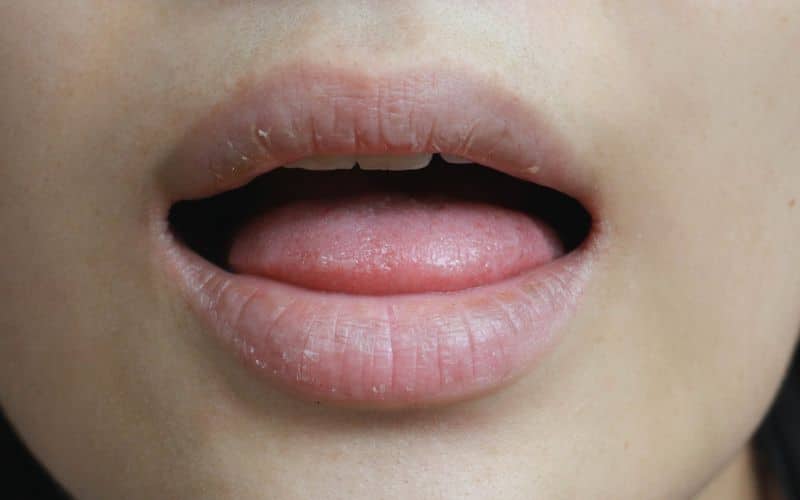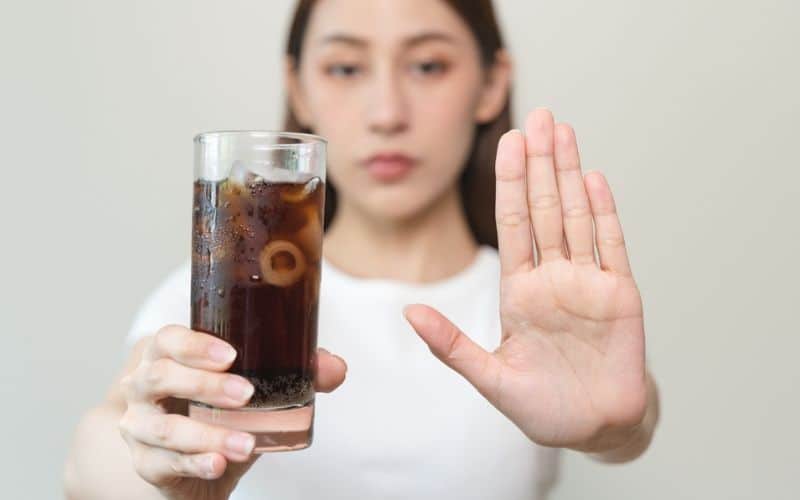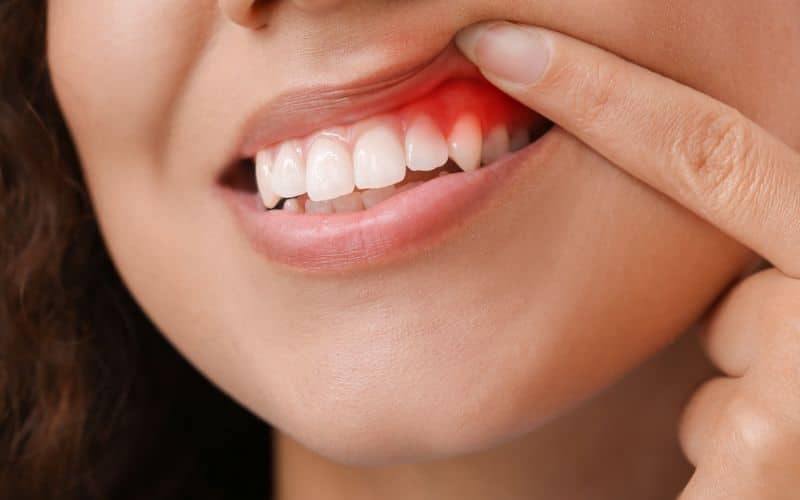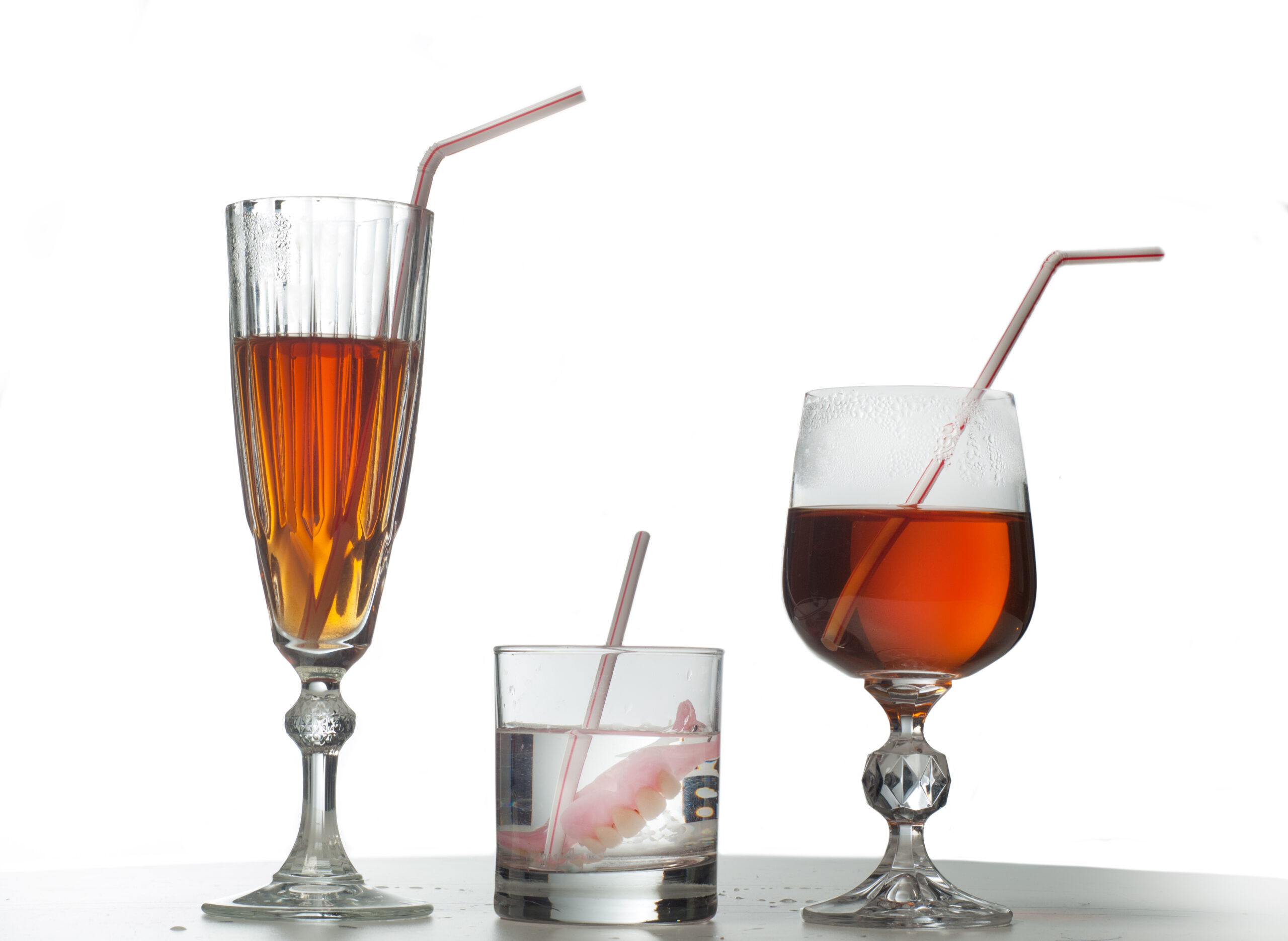If you drink alcohol before a dental appointment, your mouth is likely to dry out and that can affect the way your dentist sees your teeth. Also, drinking alcohol can cause stomach acids to rise into your mouth which can damage your teeth and gums.
Researchers have suggested that dentists should screen their patients for signs of alcohol misuse. They could do this by handing out questionnaires at the beginning of appointments.
Dry Mouth

Dentists and the medical fraternity are generally in agreement that too much alcohol can be harmful, but it’s not as simple as saying “I just drink moderately.” Excessive drinking leads to dehydration which irritates the soft tissue of your mouth and decreases the amount of saliva. Saliva protects teeth from acid, keeps them moist and helps remove food particles that would otherwise lead to tooth decay. Lack of saliva leads to a coated tongue, which is an area where bacteria and dead cells collect along with the sticky film of sugar that can cause tooth decay.
Alcohol also stains teeth. The color in many drinks comes from a substance called chromogen, which attaches to compromised enamel and causes staining. Drinking through a straw, avoiding dark beers and sodas, and rinsing between drinks can help prevent staining.
Drinking can also interfere with pain medications, causing them to be less effective or even dangerous. It can also make it difficult to stay awake for procedures, which is important when undergoing dental work. It’s a good idea to avoid alcohol at least 24 hours prior to your appointment.
Too Much Soda or Sports Drinks

While it is acceptable to drink an occasional beer or glass of wine, regular consumption of soda and sports drinks is bad for your oral health. These beverages are high in sugar and acid, which can erode enamel and cause tooth decay. Drinking them regularly can also lead to a condition known as dry mouth, which decreases saliva production and increases the risk of cavities and gum disease.
In addition, alcohol can interfere with certain medications, including those used to treat pain and anxiety. It can also cause drowsiness, which can be an issue if you’re scheduled for a procedure that requires you to be awake and alert. It’s important to avoid alcohol for these reasons before a dental appointment.
In a recent study, researchers from the University of Cardiff suggested that dentists should screen patients for signs of hazardous drinking patterns. They suggest that a questionnaire at the start of a consultation would help identify those who are consuming too much alcohol and provide them with motivational advice and treatment.
Bad Breath
If you have bad breath — or halitosis — it could be a sign of alcohol abuse. A person’s mouth and throat produce odor-causing bacteria after drinking, especially if the drink is mixed with sugar. Alcohol also dehydrates the mouth, reducing saliva, which helps wash away bacteria that cause bad odors.
Several medical conditions, including acid reflux or heartburn (which is often associated with heavy drinking) and tonsil stones, can also cause halitosis. People with certain cancers or metabolic disorders may have a distinctive smell in the mouth, as can certain diseases that affect the lungs and respiratory tract such as bronchitis and sinusitis.
If a person regularly has bad breath, it’s a good idea to see a dentist. The dentist can assess the condition of the teeth and gums, as well as a patient’s general health, to find out what may be causing the halitosis. If a dental problem is causing the halitosis, it can be treated, which may help to cure the bad breath and improve oral and overall health. If the halitosis is caused by drinking, the dentist can advise on how to reduce alcohol consumption or suggest ways to mask the odor, such as chewing sugar-free gum or using minty mouthwashes. In some cases, a dental professional can refer a patient to their family doctor to get help with the underlying health issue that’s contributing to the halitosis.
Gum Disease

Gum disease is a serious condition that can lead to bone loss, loose teeth and gum tissue. Heavy alcohol consumption is linked to a higher risk of gum disease and can increase the severity of existing gum disease.
Alcohol causes a drying effect in the mouth which decreases saliva production, allowing bacteria to grow. These bacteria turn sugars in food and drink into acid that eats away at tooth enamel. Gum disease can also cause the gums to become irritated, causing them to bleed when brushing or flossing.
Gum diseases that are left untreated can progress to periodontitis, a severe form of gum disease that can lead to tooth, bone and tissue loss. Gum disease may cause pain or tenderness in the gums, bleeding when brushed, bad breath and a change in the way your teeth fit together when you bite.
The best way to avoid alcohol-related dental problems is to not drink in excess and practice good oral hygiene on a regular basis. A balanced diet, drinking plenty of water and visiting your dentist regularly can also help prevent alcohol-related dental problems.


